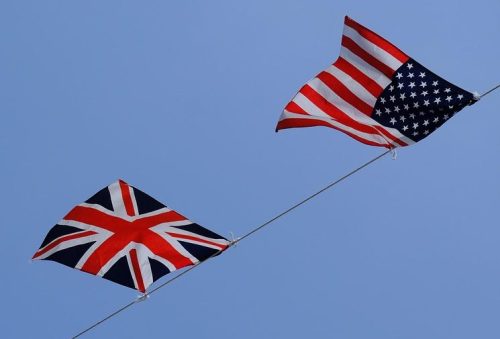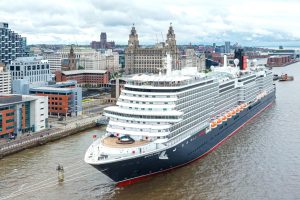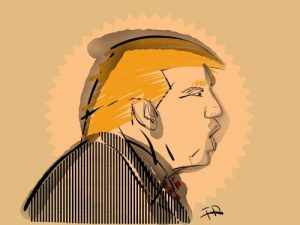Chamber warning: Trump tariffs will cause most challenging period in trade history

The US government’s decision to impose a 10% tariff on British exports will hit several key UK industries including car manufacturing and pharmaceuticals, according to research from Greater Manchester Chamber.
Although the tariff facing the UK is lower than that for the EU, it will still have a major impact on the economy and could lead to further disruption to trade as other countries react to US tariffs, and the business organisation is urging government to support businesses through what it describes as the most challenging period in trade history.

Susana Córdoba
Susana Córdoba, Head of International Trade at Greater Manchester Chamber of Commerce, said: “UK and Greater Manchester businesses will face significant challenges due to the direct tariffs imposed by the US, but the impact extends far beyond. Tariffs on key markets such as the EU, China, and other Asian countries will disrupt global supply chains, affecting companies that rely on interconnected trade networks.
“So, whilst the 10% imposed on the UK seems to cover specific goods, if you are a company whose manufacturing is taking place in any of the impacted markets, the chances are you may be facing higher costs and trade restrictions ripple across borders, impacting pricing, production, and competitiveness.
“We urge UK companies to take action and assess how their goods will be impacted across supply chains, understanding rules of origin and putting in place a duty management plan that helps you navigate one of the most challenging periods in trade history.”
Babs Murphy, chief executive of the North and Western Lancashire Chamber of Commerce, said the government has demonstrated “commendable composure thus far”, and warned of a heightened risk of trade diversion, which could disrupt business communities globally.
The Chamber has received several enquiries from Lancashire businesses on how the tariffs will affect them.
She added: “The UK holds significant influence; our bilateral trade with the US amounts to £300 billion, with £500 billion invested in the US and $700 billion invested in the UK. There exists a robust level of interdependence, and we are actively consulting with local businesses to explore options for the government to consider.
After meeting business leaders, including major North West employers Airbus and GSK, at Downing Street for breakfast today (3 April 2025), Prime Minister Sir Keir Starmer has said the government won’t rush into a retaliation as a response.
Rain Newton-Smith, CEO, CBI, said: “Business has been clear: there are no winners in a trade war. Today’s announcements are deeply troubling for businesses and will have significant ramifications around the world.
“A cool and calm reaction from the UK Government is the right response: UK firms need a measured and proportionate approach which avoids further escalation. Retaliation will only add to supply chain disruption, slow down investment, and stoke volatility in prices.
“The government has rightfully tried to negotiate a carveout to any incoming tariffs through a bilateral economic deal. As they seek to grow the economy, negotiating stronger trading relationships with all like-minded partners will be foundational to any success.
“The UK must use this unpredictable period to double down on its commitment to free, fair and open trade. Doing so will provide businesses with the confidence needed to kickstart growth, foster innovation, and boost productivity.”
Danni Hewson, head of financial analysis at Manchester-headquartered investment platform AJ Bell, said: “The UK might have got off lightly compared to its European neighbours but without a trade deal the impact of these tariffs will be punitive and, perhaps as importantly, politically difficult to ride out.”
She pointed out that UK Business and Trade Secretary, Jonathan Reynolds had published an indicative list of US goods which could be subject to tariff charges.
“The list of items being considered as part of any retaliatory strike is mind boggling, with items like golf clubs, fish waste and dolls all featured on the extensive list. Tariffs here would hurt US exporters, but they’d also hurt a UK consumer currently contending with April’s price rises and not in the mood to wrestle with another bout of inflation.”








